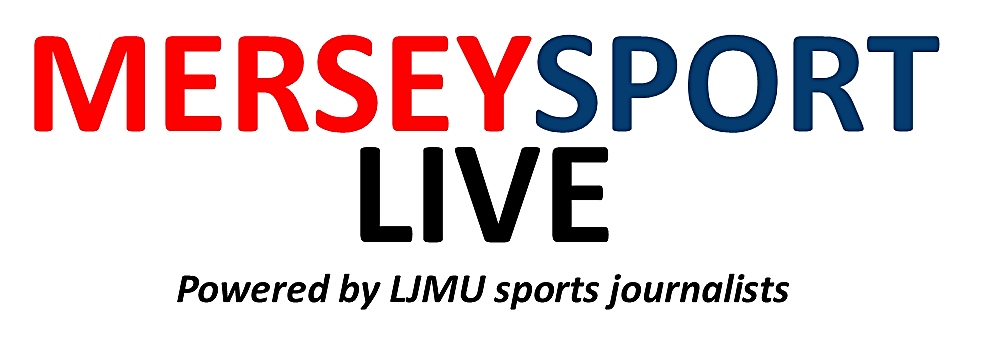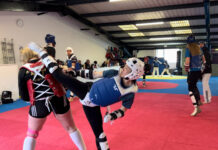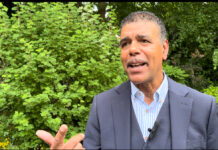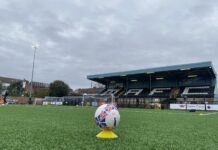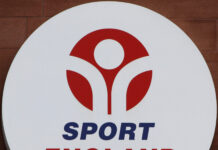In the Summer of 2012, Professor Stephen Hawking stood before thousands of Paralympic athletes and delivered a speech that will forever remain in Paralympic history.
As the Queen opened the ceremony, Professor Hawking told the athletes: “We are all different… but we share the same human spirit”.
The speech set up what was a widely successful Paralympic Games for Great Britain, that followed on from the Olympic Games a few weeks prior.
The biggest stage in history for Para athletes was expected to set up changing attitudes forever towards disability sport in the UK, but the changes haven’t been as sustained as many had hoped.
The London 2012 Paralympics had a major impact on the country. The Games saw Team GB finish third, with 120 medals and 34 of them gold.
Performances from David Weir and Jonnie Peacock stole the hearts of the British public.
More specifically, 33 athletes represented Liverpool at the 2012 Games and showcased their skill level that inspired Merseyside and surrounding areas.
They competed across the two Games and those who collected medals received a historic reception at the Liverpool Town Hall afterwards.
Lord Mayor at the time, Sharon Sullivan, thanked the athletes with Paralympian’s David Devine, cyclist Lora Fachie and wheelchair basketball competitor Dan Highcock receiving honours for their performances.
Devine, from Liverpool Harriers, secured two bronze medals at the Games in the 800m (T12) and 1500m (T13).
Lora Fachie went on to secure two medals in Rio four years later and has become a huge inspiration in the sport in the UK.
Disability sport around Merseyside did see an initial boost in participation with Rio 2016 being highly successful for Great Britain. Multiple centres around the area are helping to promote the sport as easily accessible to anybody.
Greenbank Sports Academy, Knowsley Disability Concern, Liverpool Resource Centre and the Liverpool FA have all improved in their attempt to increase participation.
The World Boccia Championships were held in the city last year, showing disability sport still resonates in the city. 180 athletes competed from a combined 33 countries in what was the biggest in the Championships history.
England’s David Smith won the world WC1 individual title and BISFed President David Hadfield called the event a key turning point in the development of Boccia worldwide.
Similarly, the Special Olympics will be held in Liverpool in August 2021, for the 11th event in their history and the biggest disability sports event in the calendar year.
Around 2,000 athletes will venture into the city looking for success and Mayor Joe Anderson has said Liverpool will be the perfect city for the event.
He told the Liverpool Express: “Liverpool’s cultural offer will make these games a true celebration of disability sport. From the delivery of an exciting Opening Ceremony at the Echo Arena to a families programme that includes some of the biggest names in culture and the arts, including some amazing artistic commissions, Liverpool will reset the bar for what these games mean and how society treats the issue of intellectual disability.”
However, despite seemingly more events and the Summer of Paralympic success in 2012, the lasting impact of the sport hasn’t been as sustained as many had expected.

The funding of disability sport is a widely controversial issue and touches the hearts of those involved.
Funding between Olympic and Paralympic sport is still not split evenly with the 2018 Winter Olympics seeing £28.4m given to the Winter Olympic team and just £3.9m for the Winter Paralympic team, despite similar levels of success.
Similarly, for the cyclist programme between Rio and Tokyo, £11.8m of funding was given to Paralympians and £27m for Olympians.
Paralympic hopeful Nathan Maguire, a Liverpool John Moores University student, expressed his annoyance to merseysportlive about the huge disparity in funding, crediting it to the lack of increased participation after the London 2012 Paralympic Games.
He said: “Even in British Athletics, the able-bodied athletes get more than we do. If a sponsorship comes through to British athletics as a whole it will always go to an able-bodied athlete.
“That’s the hard thing about Para Sport. When an able-bodied athlete breaks a world record, they get £10,000 whereas a Para-athlete get a pat on the back and a well done. Why don’t we get £5,000 each. Just share it equally.”
Maguire suggested that England Athletics are the problem that stops as many people as possible taking part in Para sport, with their importance for disability sport a lot lower than that of able-bodied athletics.
He said: “I think it is more an internal matter within British Athletics with them seeing us like we are here to have fun rather than as an athlete. Disability is an elite sport.”
Funding has significantly dropped for all sports in the country over the last decade.
But equally, if they expect a rise in participation, then they will have to provide incentives and opportunities to those who would like to compete.
Many of those who want to compete are disenfranchised, as it is so difficult to earn a classification or even find out about events that adhere to solely disability sports.
St Helen’s Sutton Athletic Club chairman Matt Crehan revealed the difficulties he and his girlfriend Jade Smith had in trying to get her classified to compete at a higher level.
“There is a difficulty in the way para-sport is governed,” he said.
“I mean I’ve been involved in athletics all my life and when I started looking into it to help her to see if she could qualify, it was really hard work to see what she needed.
“It was hard to see what paperwork she needed, and it was a ridiculous task in itself to get her classified, even though she had documents from experts that had diagnosed her.
“To then prove that to the British Paralympic Association was crazy, considering the amount of work that needed to be done to prove that considering all the medical paperwork was all there.
“Once she was classified, other paperwork needed to be done so she could rank in the Paralympic rankings for the year.
“There were documents on it, but this was a visually impaired Paralympic athlete you are talking about, she can’t just read it herself.
“If she didn’t have me here to go through that 200-page document, how else was she finding that out, without somebody phoning her or quickly putting it out on an email.
“I thought that it was difficult to just find out stuff about how to compete and what races there were, and I’m regularly involved in athletics.
“Stuff was emailed out but that doesn’t cut it. It should really be over the phone considering she is visually impaired.”
Crehan was frustrated at how long the process was, especially due to how infrequent the classification appointments were around the country.
He said: “There are three classification appointments a year for visually impaired athletes.
“Maybe that is a funding thing, but for me that isn’t very many and you’re talking a five/six-hour time slot.
“We had to travel down to London for her classification. There was one in Manchester, but it was at the other end of the year which means she would have had to miss out being classified all this year.
“Luckily, we were able to get her classified and she is now ranked sixth in the world but if she would have had to wait until now, she wouldn’t have had that ranking.”
It seems the difficulty of finding out how to participate is deterring people away from the sport.
The SHS Chairman believes there are a lot more people who would like to compete or could compete, but the process puts up an unnecessary barrier.
Clearly, public perception towards disability sport has changed since London 2012, but it is only right that increased participation should represent that.
Ultimately, the legacy of the London 2012 Paralympics is still unknown and will be for many years to come.
The performance of British athletes in major tournaments has improved since the Games, however funding and the long process to become classified is still a major issue for anybody trying to compete in disability sport, especially at the elite level.
The desired legacy of London 2012 hasn’t been reached yet, as it should have been the catalyst for long-term change, but the sport is still in its growing stage and one day will be deservedly recognised as an elite sport.
(Picture by James Mitchell under Creative Commons Licence)
